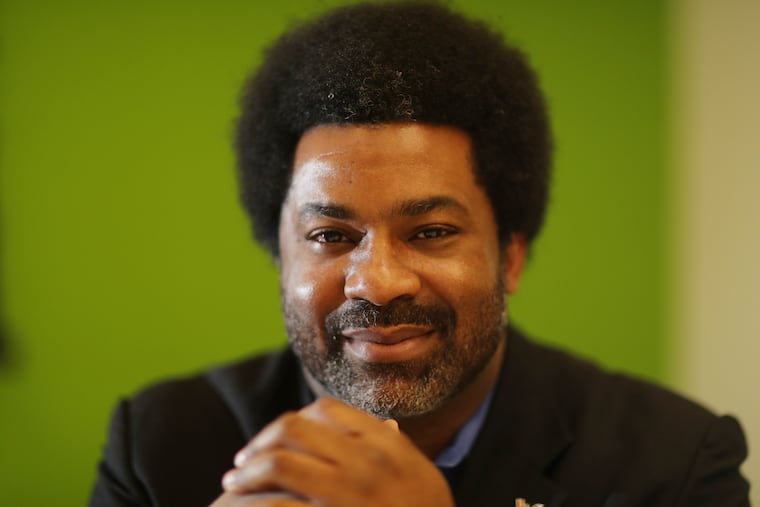get these nets
Veteran

A Philly group that wants to get more Black teachers in classrooms is fighting the Trump administration’s DEI crackdown efforts
The U.S. Department of Education said schools must end DEI programs in order to receive federal funding and the Philly-based Center for Black Educator Development joined a lawsuit against that effort.
04/29/25
Federal judges late last week halted — for now — efforts by President Donald Trump’s administration to block diversity, equity, and inclusion programs in public schools.
Among the organizations that sued to stop the DEI crackdown was the Philadelphia-based Center for Black Educator Development, founded and run by Sharif El-Mekki. El-Mekki has spent his career teaching and leading in city schools, and has risen to national prominence for his work in diversifying the teacher pipeline.
The U.S. Department of Education this month said schools could not receive federal funding unless they ended DEI programs and classroom teaching that might be perceived by the administration as discriminatory. It did not outline specifics as to what constituted such practices.
The order moving forward would dismantle the core work of the center, El-Mekki said, which is to provide “all students with access to high-quality education that improves their conditions and learning outcomes, and to rebuild the declining national Black teacher pipeline. A lack of diversity in our classrooms impacts all of us, and now we’re being attacked for actually trying to create a just educational environment for all."
The center joined the National Education Association in the suit, which was filed in federal court in New Hampshire and is being argued by the American Civil Liberties Union
What did El-Mekki argue in legal filings?
Amid an ongoing national teacher shortage, “it is critical to recruit, support and retain as many qualified teachers as possible to ensure the successful functioning of our public education system,” El-Mekki wrote in a March legal filing attempting to block the U.S. Education Department order on DEI.Efforts to block building a robust, diverse teacher pipeline would be harmful to all students, El-Mekki argued.
Black teachers often face tougher working conditions, he said: “Black individuals who do become teachers face tougher working conditions and leave the profession at higher rates than their white peers. Some of the reasons for this include the fact that Black teachers are often tasked with handling the bulk of student disciplinary challenges and are often expected, whether formally or informally, to be spokespeople and trainers of colleagues in instructional practice that meet students’ needs.”
Teachers who are not Black often do not receive instruction on how to teach Black students in an effective and culturally responsive way.
But the center and other groups that work in this space have been hamstrung by the Trump administration’s anti-DEI crusade, El-Mekki said, “by calling into question the legality of our programs through vague and overly broad conceptions of illegal DEI work.” Core services are affected, El-Mekki said.
The center’s programs “do not discriminate on the basis of race and are open to all aspiring and current educators,” but “do invoke concepts that relate to ‘diversity,’ ‘equity,’ and ‘inclusion.’ This has never been considered illegal discrimination. Our focus on Black pedagogy and the importance of Black teachers, and discussion of topics like cultural proficiency, anti-racism, implicit bias, cultural identity, microaggressions, equity, and bias … are intended to redress or prevent discrimination,” El-Mekki wrote. “Yet the department now casts doubt on any effort to acknowledge racial issues plaguing our education system, and threatens punishment to districts who partner with those who attempt to bring awareness of these issues, like our organization.”
The administration’s order is an “existential threat” to the center, but also threaten to deepen the teacher shortage, the suit says.
“Based on our experience and research, there is a significant risk that potential teachers will seek other opportunities where they will not fear reprisal, scrutiny or harassment for discussing their own culture or history or for practicing cultural sensitivity,” El-Mekki said.
Last edited: